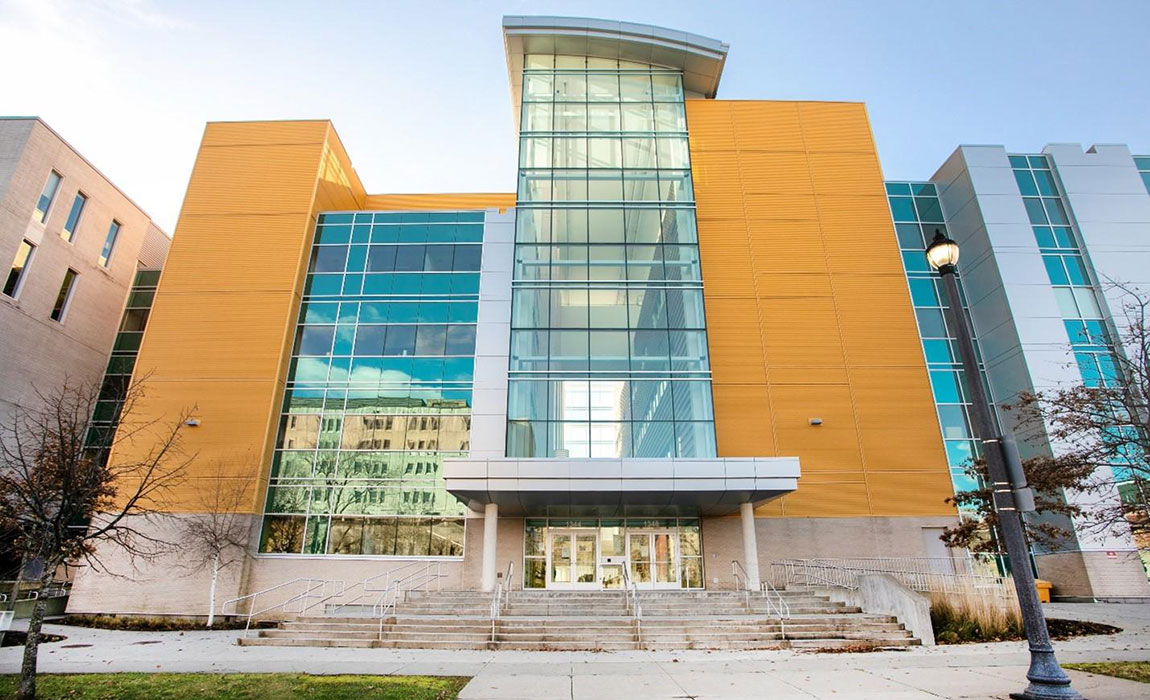Rising Tide BioAcoustics Uses Underwater Sound to Protect Marine Species
Wednesday, September 28, 2022
Innovacorp Accelerate is a milestone-based program that helps Nova Scotia start-ups get investment-ready. In addition to funding, companies get access to a series of acceleration activities and resources.
Increasing noise levels in the ocean harm many marine species, so the idea of adding sound to the marine environment to benefit those species would appear to be counterintuitive. Yet Rising Tide BioAcoustics, a new company based in Innovacorp's Start-Up Yard at the Centre for Ocean Ventures and Entrepreneurship (COVE) in Dartmouth, is preparing to do exactly that.
"All the technologies we're looking to develop will have a positive impact on the marine environment," says company founder Geoff Lebans. "We're really excited and proud about that."
Geoff has been part of Nova Scotia's ocean technology sector since 1984, most recently with GeoSpectrum Technologies, a military sonar and acoustic systems provider. When GeoSpectrum was sold to a multinational corporation and shifted its marketing focus, Geoff worked out an agreement with them to use their unique hardware for environmental applications. As part of the deal, Rising Tide BioAcoustics will also resell GeoSpectrum components.
"GeoSpectrum's speakers produce low-frequency sounds and particle motion that fish hear and sense, and right now they're way ahead of what anybody else has," Geoff says. "Their family of speakers are an order of magnitude smaller than the previous state-of-the-art models. Bioacoustics researchers have long known that low-frequency sound will allow you to do what we want to do. But, until now, the speakers were too big, too expensive, or too unreliable."
Rising Tide's research partner at the University of Windsor has shown that sound can be used to deter or guide most fish species. Geoff began considering how these speakers could be used to keep fish out of the intakes of power plants and manufacturing facilities.
"There are something like 60,000 hydro-electric power plants in the world, with an equal number of other facilities that use large amounts of water, and a fair percentage of those have issues with fish intake into turbines or into cooling water intakes," he says. "In many parts of the world, these facilities have to deal with stringent environmental laws."
Rising Tide is working with a partner in Ontario to test the use of sound to control zebra mussels in the Great Lakes, with the initial work being funded by nuclear power plant owners.
In addition, the company has received funding to start developing an active noise-cancellation system for the underwater noise produced by ships. "The ocean is getting noisier, and most of that noise is coming from large vessels such as cargo ships, container vessels and cruise ships," Geoff says. "Lots of good work is already going on to make ships quieter, and our system would complement that work."
He also sees a business case for reducing noise of fishing vessels. "The noise from fishing vessels will scare some fish away, so if you can make those ships quieter, they'd be able to fill their holds faster, which would have a positive environmental impact," Geoff says.
The company is collaborating with Katchi, a Yarmouth-based company that specializes in precision fish harvesting, to develop an environmentally friendly fishing trawl.
Rising Tide is now gearing up to demonstrate the technologies to a large number of potential customers. "Right now we have three employees, and we expect to hire a few more in the coming weeks," he says.
Rising Tide received start-up funding from the Accelerate program and the Ocean Startup Project. "Without that, we wouldn't be anywhere near where we are now, and not just because of the financial support. The mentorship has been invaluable as well," Geoff says.
"I've got nothing but good things to say about Innovacorp, its acceleration program, and COVE," he adds. "Nova Scotia is now home to an underwater acoustics cluster that spans a number of companies and research labs. I'd say that cluster is approaching world class."




